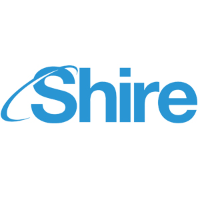Shire plc (LON: SHP) the leading global biotechnology company focused on rare diseases, announced today that the Ministry of Health, Labour and Welfare (MHLW) in Japan has granted manufacturing and marketing authorisation for FIRAZYR® (icatibant injection), for the acute treatment of hereditary angioedema (HAE) attacks in adult patients with HAE.
HAE is a rare genetic disease characterised by recurrent attacks of localized oedema (swelling). The areas of the body most commonly affected are the extremities, skin, gastrointestinal tract and, less frequently, HAE can cause life-threatening attacks due to obstruction in the upper airways. Symptoms of HAE often present in childhood, and while attacks can occur at any age, early onset may predict a more severe disease course.
Executive Vice President, Andreas Busch, Ph.D, Head of Research and Development at Shire Plc said: “As a long-term partner to the HAE community, we continually strive to bring treatments to those living with HAE around the world. HAE attacks can be unpredictable and debilitating and we are delighted that, subject to price listing, we will be able to provide the Japanese HAE community with the first subcutaneous on-demand therapy to treat acute HAE attacks.”
For most people, attacks of HAE are caused by a deficiency of a protein called C1-esterase-inhibitor (C1-INH), either there is not enough of it or it does not function properly. Without sufficient or functional C1-INH, plasma kallikrein in the body is not appropriately controlled. Overactive plasma kallikrein leads to excessive release of bradykinin which causes blood vessels to release fluid, leading to the swelling which characterises HAE. FIRAZYR works by blocking bradykinin from binding to certain receptors in the body, thereby treating the symptoms of acute attacks of HAE.
The use of FIRAZYR in Japanese patients was examined in an open-label, single-arm, Phase 3 study of 8 adult patients with a confirmed diagnosis of HAE who experienced angioedema attacks. During the study, 3 patients self-administered FIRAZYR and 5 patients had FIRAZYR administered by a physician. The primary efficacy endpoint was time to onset of symptom relief (TOSR), defined as a 50% reduction from baseline in patient Visual Analog Scale (VAS) score.
The study showed that FIRAZYR was well tolerated and demonstrated symptom relief during an acute HAE attack through a single injection. Overall, median TOSR was 1.75 hours, and TOSR was similar for patients who self-administered FIRAZYR or who had FIRAZYR administered by a physician. Symptom relief was attained as early as 1 hour after FIRAZYR injection and all patients had symptom relief within 5 hours.
The most common adverse events in patients treated with FIRAZYR were injection site reactions such as erythema, or swelling, which were found to be mild to moderate in severity.
About Hereditary Angioedema
HAE is a rare, genetic disorder estimated to affect about 1 in 10,000 to 1 in 50,000 people worldwide. There are an estimated 2,500 people living with HAE in Japan. The condition results in recurring attacks of oedema (swelling) in various parts of the body, including the abdomen, face, feet, genitals, hands and throat, that can be debilitating and painful. Laryngeal attacks that obstruct the airways are potentially life-threatening due to the risk of asphyxiation.
Management of HAE includes on-demand treatment of swelling attacks to minimise the consequences of the symptoms, and pre-procedure prevention, which is often used before certain surgeries. Long-term prophylaxis (the routine use of medication to prevent episodes of angioedema) may be considered for severely symptomatic patients with HAE.
About FIRAZYR
FIRAZYR is indicated in Japan for the acute treatment of hereditary angioedema (HAE) attacks in adult patients with HAE.
In general, the recommended dose of FIRAZYR is 30 mg administered subcutaneously in adults. Additional doses may be administered at intervals of at least 6 hours if response is inadequate or if symptoms recur. No more than 3 doses may be administered within any 24 hour period.
The active substance, icatibant, is a specific bradykinin B2 receptor antagonist. It represents a novel, targeted, subcutaneously-administered approach to the treatment of HAE attacks designed to block the effects of bradykinin, the key mediator of oedema formation. FIRAZYR is a synthetic decapeptide (a peptide containing ten amino acids).





































